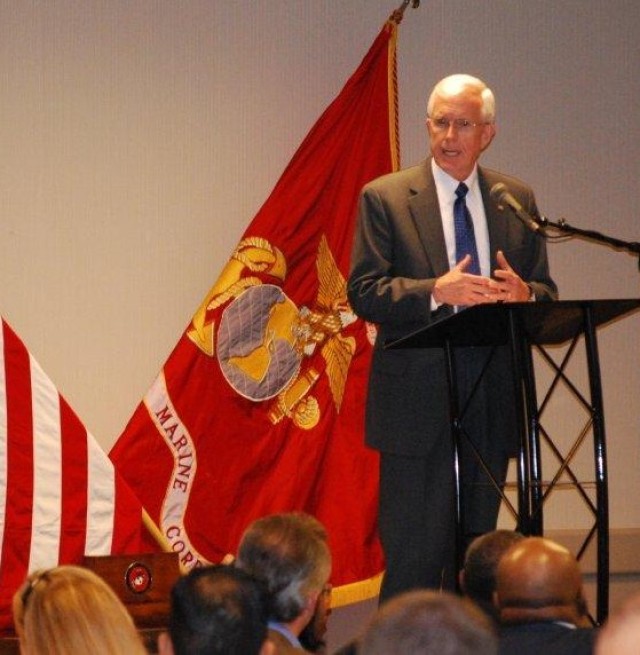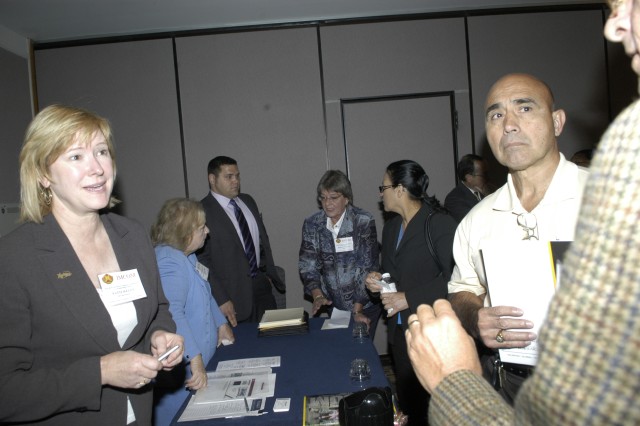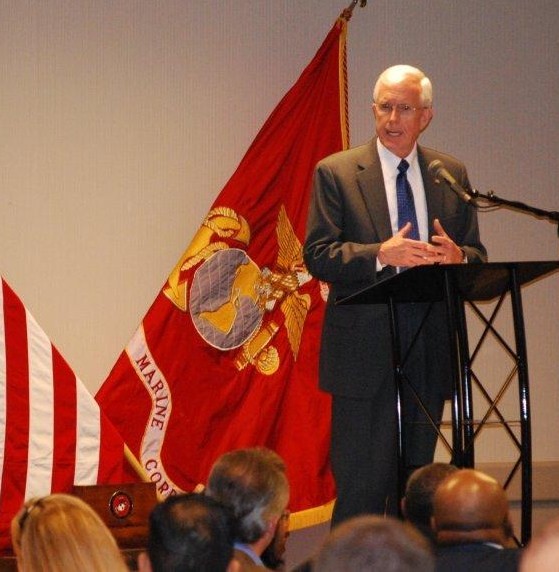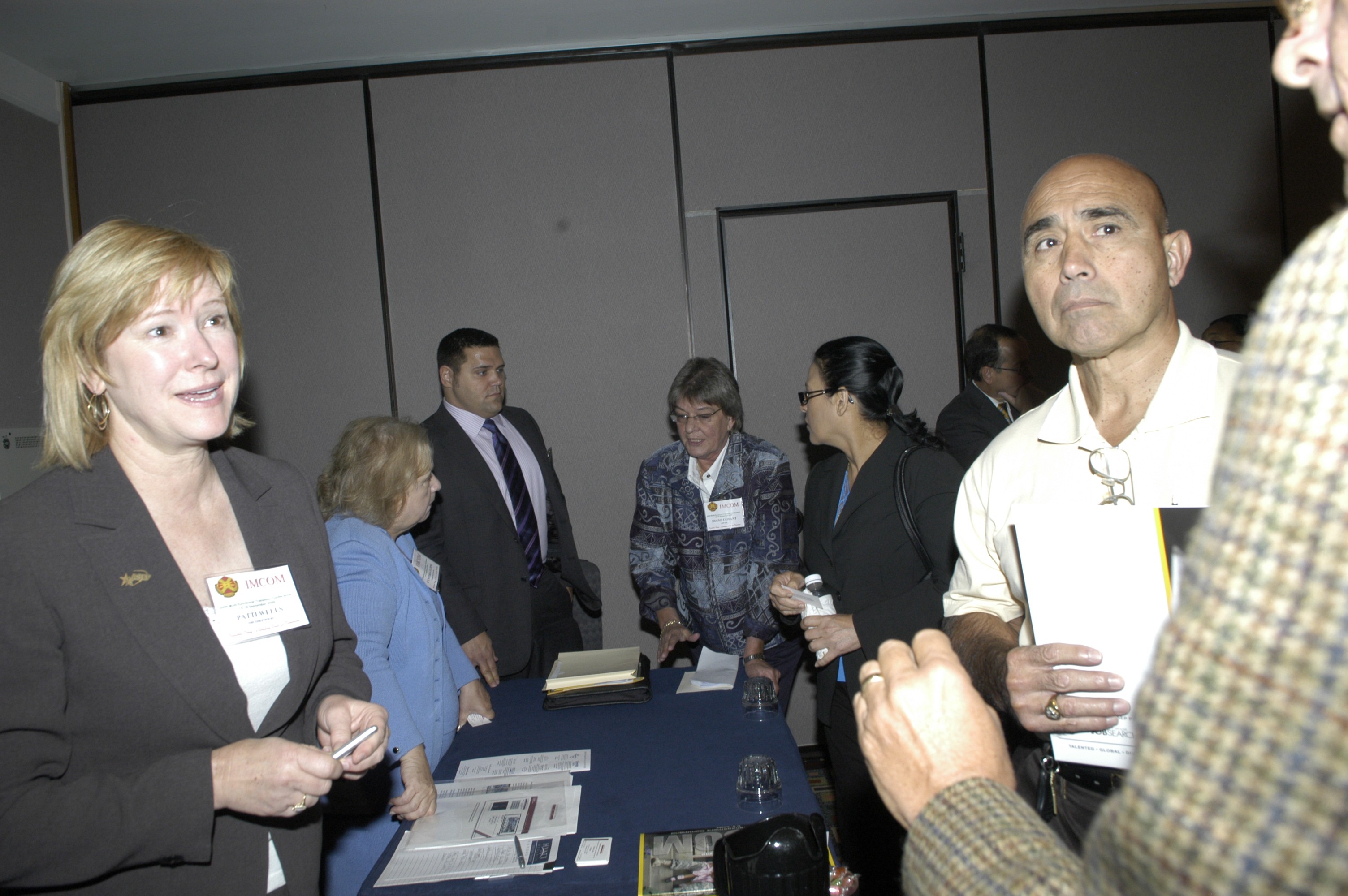KANSAS CITY, Mo. - For the first time, this past fall, the U.S. Army Installation Management Command Headquarters combined three key human resource functions in one training conference.
These services - Army Career and Alumni Program professionals, Transition Center managers and Retirement Services Officers - support and provide services to Soldiers, Civilians and Family members who transition from the military to the civilian sectors.
The collaboration, scheduled again for the spring of 2011, provided professionals the opportunity to share ideas, best practices and the steps to improve communication between all services.
Kenric Echols, chief of the Installation Management Command's Military Personnel Division, directed the effort to pull transition service functions together, rather than meeting separately.
"By meeting together we can provide financial savings and also benefit all the stakeholders, including the Veterans Administration and the Department of Labor. This way we can build a better agenda and provide essential networking," Echols said.
The first day of the conference was designed as a general session for all attendees to gain synergies from each transition discipline and allow for common subjects such as Veterans Affairs Benefits, Army and IMCOM Transformation, and the Army's Disability Evaluation System to be presented and discussed.
Congress directed the military services to provide transitioning service members pre-separation counseling no less than 90 days before separation and to ensure that job assistance services are available on the installation. Pre-separation counseling is a valuable information resource for Soldiers. This conference focused on critical transitioning needs and benefits.
Keynote speaker of the conference retired Brig. Gen. Steve Smith, the 58th Adjutant General of the Army, director of Enlisted Management and deputy commanding general of the U.S. Army Recruiting Command before retiring in 1998, spoke of the historical perspective and current program relevance.
"Not everyone was supportive of ACAP, RSO and TC Centers. Some questioned the purpose, the need and the cost. Resources were scarce and each program competed on its merit and its contribution to readiness. But today, the transition services help sustain an all-volunteer force and contribute significantly to readiness in times of persistent conflict," Smith said.
Today, according to Smith, the Army has sustained readiness despite the small force structure because of the quality of its servicemembers, both uniformed and civilian.
"It's the transition managers who reach out and inform civilian employers how Soldiers and spouses are adaptable, organized, open to criticism, have respect for leadership, have the ability to lead others, understand the importance of community, are innovative and resourceful, and are already trained to believe in excellence.
"Transitioning professionals play a vital role in this quality of the force and above all its readiness. What you do helps sustain an all-volunteer force, contributes significantly to readiness and provides dignity in transition," Smith told the managers and officers during a lunch meeting.
When Army alumni are successful in the business world after making the decision to leave, they serve as powerful examples of what Army service can do for a young man or woman's future. Those who are capable of translating Army skills, training and experience into rewarding careers are living billboards promoting the Army as a great place to start.
Other presentations about employment services, Retirement Services benefits and Transition Center Requirements were delivered by top names in the business, including USA Jobs, Monster, CareerCentral, CivilianJobs.com and Veterans Talent Gain Project.
Other presenters included David Dubois from the DoD Transition Office David Dubois, Robert Reynolds from Veterans Affairs, Scott Lafferty from Defense Finance and Accounting Service, Steve Welch from Human Resources St. Louis, Col. Cheryl Carson from Army Disability Evaluation System, Dr. Pamela Raymer from Army Management Staff College, and Col. Pat Sargent from Warrior Transition Command.
Pauline Purdum, the second director of ACAP until her retirement in 1995, was one of six Army civilians selected to attend the Industrial College of the Armed Forces at Fort McNair during 1984 -1985 and twice received the highest civilian award given by the Army.
"I wasn't sure ACAP would survive when I left," Purdum said. "But it has and it's the best thing the Army has done."




Social Sharing